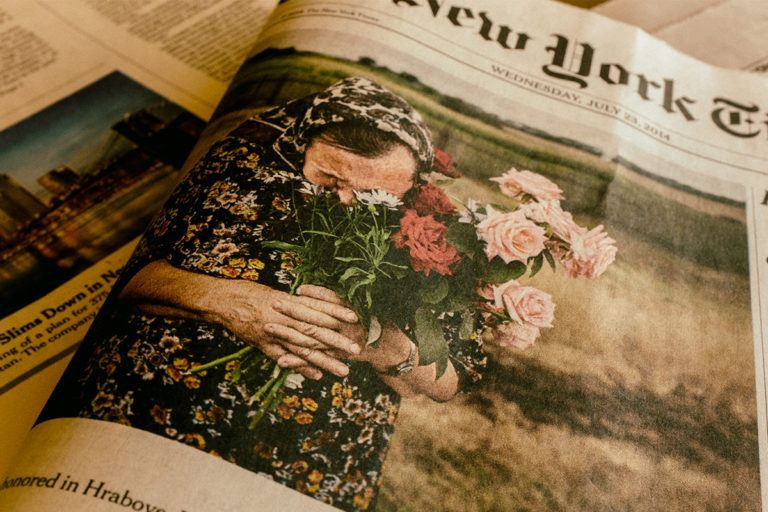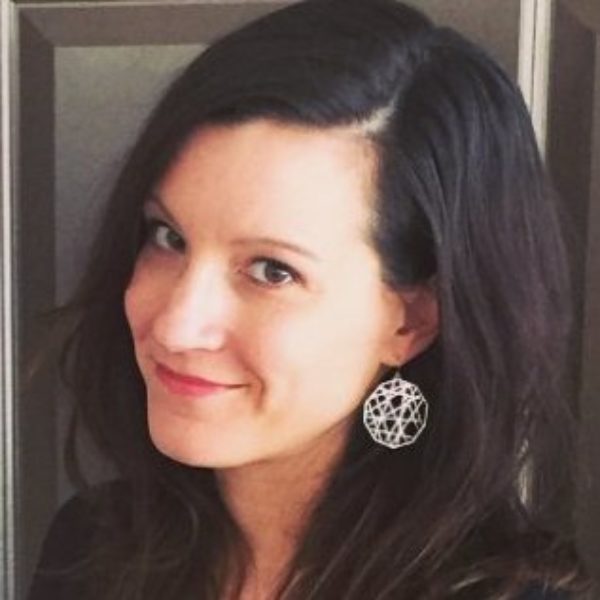
Image by Sonny Abesamis.
On Uncomplicated Grief in the New Normal
This is not an accusation; it’s a confession.
I have worked in higher education for over a decade. Most of those years were spent on a community college campus, much like the one at Umpqua Community College where the mass shooting took place two months ago. It broke my heart.
I’ve taught those students, in that classroom, on a day just like October 1. Windows were cracked open to let some fall air wander through. Backpacks and messenger bags lined the floor. A manila folder filled with essays sat on a table in the front of the room; they’ll never be returned. I can picture the faces of those students and their teacher, our students and our colleague, the men and women for whom UCC represented the next best step toward fulfilling their dreams.
Anger followed sadness at the start of October. The more tweets or Facebook statuses I read referencing the shooting, the angrier I became. We had to do something. A status matters, but it is not enough.
Prayer can be an excuse for complacency. I will do something, I thought. But what can I do? There are no verbs in this pile of useless nouns.
I spent the day after the shooting on my computer, the place where those of us who feel like we can’t do anything now begin. I wrote to seven different elected representatives at all levels of government, asking them to address gun violence. I tweeted at as many higher education professional organizations as I could find, asking them to take a stand on gun violence on campus. I exchanged emails and texts with colleagues, brainstorming solutions and lamenting the lack of attention to fundamental safety, a clear precursor to teaching and learning.
I knew that the “#UCC” hashtag would fade. I knew that the hashtags that replaced it would be superficial at best, hateful at worst. I couldn’t let that fate befall my own voice. I owed it to those students and their professor to keep UCC at the forefront of my mind and heart. So I tweeted this:
I am going to tweet about #UCC for one month and then I’m going to write about what I saw.
I meant it when I wrote it. I knew what I’d see. The story would fade into the background, as stories do. There might be a renewed blip of interest if some salacious detail of the shooting were to be released, but other than that, the killings at UCC would become a footnote in our history, an addition to one of the ugliest lists ever written about our country. America would return to normal — albeit a new normal.
I just didn’t think I’d be one of the ones who would let it fade. I expected to accuse, not to confess.
There is a term in the psychology of death and dying called “complicated grief.” It is a grief that lingers past the normal grieving curve. What do we call it, though, when we don’t grieve for long enough? Uncomplicated grief? It feels anything but uncomplicated.

I tweeted for several days. I read their obituaries. I practiced yoga and dedicated my practice to them, to their families, and to the people of UCC who returned to campus, but especially to those who couldn’t. I held them in my heart for a couple of weeks. I retweeted any news story about them that I could find. I read a response, canned and impersonal, from one of the seven elected representatives I’d written to weeks before. I did not feel represented.
Life went on. There was sickness in my house, the fall cold that spreads through the Northeast at the change of seasons and the start of school. There was travel to a higher education conference. We did not speak of UCC. I thought about it, thought about asking for a moment of silence before my presentation, but I worried it would be seen as overly emotional and unprofessional. I’m not proud to write that, but this is, after all, a confession. They are meant to expose one shame or another.
I missed a few days of tweeting during that time. I had already broken my promise.
My grief had been replaced with embarrassment. I thought I was different, but I was as uncomplicated as everyone else. I deleted my original tweet to hide my shame. I wasn’t going to tweet about UCC anymore; I hadn’t even come close to my one-month goal. My life, and my tweets, returned to the new normal. My angry, red heart fell like the autumn leaves: dying, dead, and then swept away.
In its place is a mottled pink curiosity, raw and coarse. How do things change? How do we turn grief into action? Should we?
My only solace is that I am not alone. The leaves, this time of year, fall endlessly.

